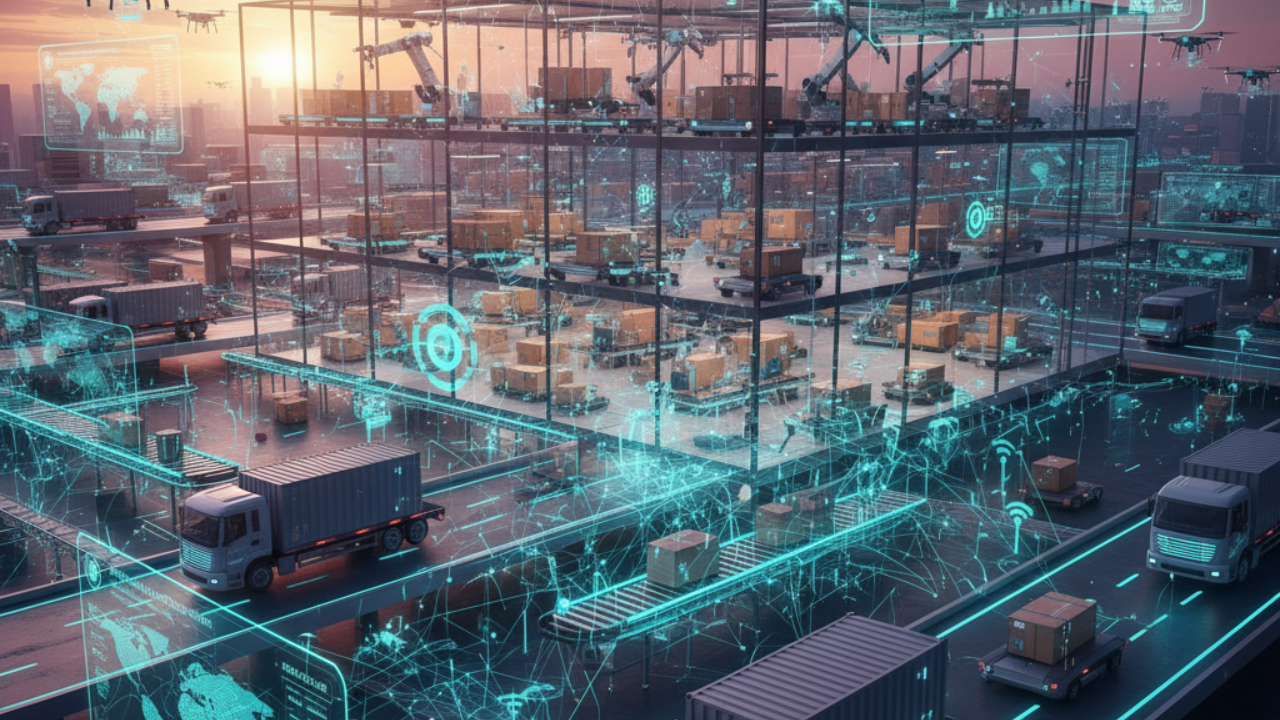
Post by : Meena Rani
The integration of smart sensors and autonomous vehicles is revolutionizing the supply chain industry. Real-time data collection, reduced operational costs, and faster delivery times are transforming logistics, though high initial investment and network connectivity remain key challenges.
Smart sensors provide continuous monitoring of inventory, temperature, humidity, and vehicle performance, enabling accurate and timely decision-making throughout the supply chain.
By detecting delays, bottlenecks, and equipment issues early, sensors improve operational efficiency, reduce downtime, and minimize wastage.
Data from sensors feeds predictive algorithms that forecast demand, optimize routes, and schedule maintenance, leading to cost savings and better resource utilization.
Self-driving trucks, drones, and warehouse robots enhance last-mile delivery, reduce human errors, and increase speed and reliability of shipments.
Autonomous vehicles work seamlessly with smart warehouse systems, coordinating loading, unloading, and storage operations with minimal human intervention.
Although initial investment is high, autonomous vehicles reduce labor costs, optimize fuel consumption, and scale logistics operations efficiently over time.
Purchasing smart sensors, autonomous vehicles, and supporting infrastructure requires significant upfront expenditure, which can be a barrier for smaller logistics providers.
Reliable 5G or high-speed network connectivity is essential for real-time data transmission, vehicle coordination, and AI-based analytics.
Autonomous vehicle deployment faces regulatory approvals, safety standards, and liability challenges that vary by country and region.
Future supply chains will leverage IoT, AI, and autonomous vehicles for end-to-end automation, enabling predictive and adaptive logistics systems.
Smart sensors and autonomous electric vehicles contribute to reduced carbon emissions, efficient energy use, and environmentally friendly logistics solutions.
The adoption of smart sensors and autonomous vehicles in logistics is expected to grow rapidly, driven by e-commerce expansion, urbanization, and increasing demand for faster, reliable, and cost-effective deliveries.
Smart sensors and autonomous vehicles are transforming supply chains by enabling real-time monitoring, operational efficiency, and faster delivery. Despite challenges like high investment and connectivity requirements, the future of logistics is moving toward fully automated, intelligent, and sustainable supply chains.
#SupplyChain #Logistics #AutonomousVehicles #SmartSensors #IoT #LogisticsTechnology










Advances in Aerospace Technology and Commercial Aviation Recovery
Insights into breakthrough aerospace technologies and commercial aviation’s recovery amid 2025 chall

Defense Modernization and Strategic Spending Trends
Explore key trends in global defense modernization and strategic military spending shaping 2025 secu

Tens of Thousands Protest in Serbia on Anniversary of Deadly Roof Collapse
Tens of thousands in Novi Sad mark a year since a deadly station roof collapse that killed 16, prote

Canada PM Carney Apologizes to Trump Over Controversial Reagan Anti-Tariff Ad
Canadian PM Mark Carney apologized to President Trump over an Ontario anti-tariff ad quoting Reagan,

The ad that stirred a hornets nest, and made Canadian PM Carney say sorry to Trump
Canadian PM Mark Carney apologizes to US President Trump after a tariff-related ad causes diplomatic

Bengaluru-Mumbai Superfast Train Approved After 30-Year Wait
Railways approves new superfast train connecting Bengaluru and Mumbai, ending a 30-year demand, easi